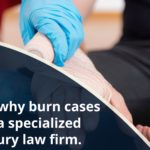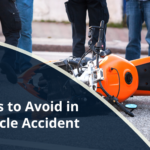The majority of personal injury claims result from automobile accidents. When another driver violates a driving rule or law and causes a collision with you or your property, that driver is negligent. If this is the case, you can file a personal injury claim to recover losses such as lost wages, medical expenses, and vehicle or property damage. Other examples of personal injury include cases of medical malpractice and wrongful arrests.
You are unsure whether your personal injury case will proceed to trial. You may be concerned about missing trial-related work. You may be an introvert who dislikes the idea of public speaking. Although there are no guarantees, the odds are in your favor if you wish to avoid trial.
It could be that you have to go for trial in the opposite situation. This is a possibility, but you must be aware of the odds prevailing in your case.
Personal Injury Trial Cases Statistics
A high percentage of personal injury cases never go to trial. In most cases, the defendant decides to settle out of court. This means that you withdraw your lawsuit, and they pay you money.
Approximately five out of every hundred personal injury cases go to trial. Some find a settlement to be advantageous. The duration of a trial can be measured in days or weeks. There is sufficient time to prepare for court. Time is required for attorneys to identify witnesses and collect evidence. There may be a need for deposits before the trial can begin. At this stage, discussions determine whether the case can be resolved outside of court.
If negotiations or mediation are unsuccessful, the case proceeds to trial. There are opening statements, witness examinations, evidence presentations, and closing statements. If it is a jury trial, jury members may need to deliberate and reach a verdict. Finally, the judge has to depict a judgment.
Pros and Cons of Trials
There are advantages and disadvantages to every trial. You must carefully weigh them when deciding whether or not to take your case to trial. If possible, it is usually advisable to reach a settlement before trial. The settlement may not be as high as if you went to court, but you receive the money faster than if you went to court. In addition, it is easier to keep the lawsuit confidential if it never goes to court.
One of the most important aspects of a trial is the length of time it can take. According to the Bureau of Justice Statistics, the median processing time from the filing date to the final decision is approximately 14 months.
Some cases last one or two days, while others continue for weeks. Trials involving personal injury are subject to the judge’s schedule. It is not uncommon for a personal injury trial to be delayed in favor of more urgent cases. This can extend the length of a trial for personal injury. In certain cases, this time can cost you more in lost wages and legal fees. You could lose a substantial amount of money if you lose the case.
Conclusion
It’s ultimately your decision whether a case goes to trial or not. A settlement offer can be made, but you have the final say if you want to accept that offer. Talk to an attorney and carefully weigh the pros and cons of a personal injury case. Contact 2H Law now at (619)-374-9320 to learn more about how we can help you.









